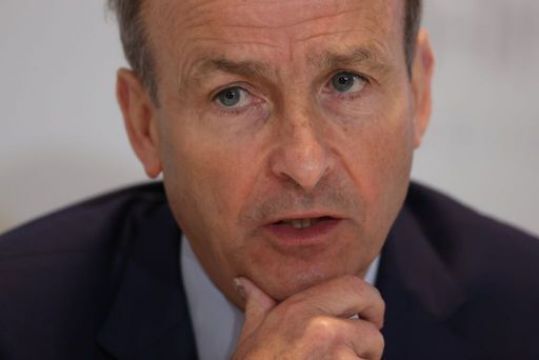Taoiseach Micheál Martin has confirmed that indoor dining will not reopen next week as planned.
He said he was advised by health experts in “stark terms” that proceeding with reopening next Monday will lead to a great increase in the spread of the virus, increase hospital admissions, illness and death.
Mr Martin said that the safest way to proceed with a return to hospitality is to limit access to those who have been fully vaccinated and those who have recovered from Covid-19.
It is now expected the Government will develop a system to allow people to prove they have been vaccinated.
So how have vaccine passports worked in Israel and other countries?
Israel
Israel currently operates a “green pass” system, which allows vaccinated people access to theatres, concert halls, indoor restaurants and bars.
With most adults in Israel now vaccinated, the government retired the pass last week.
But before this, the pass raised privacy concerns. For instance, Orr Dunkelman, a Privacy Israel board member, argued the certificate revealed information that was not necessary for others to know, such as the date a person recovered from Covid or received the vaccine.
UK
The UK government, had to roll back plans to trial vaccine passports after some of the venues involved experienced significant backlash against the proposals.
This is perhaps not surprising — vaccine passport schemes are controversial, with some arguing that they will reinforce inequalities. But there is an ethical case for using some form of certification of Covid status, as long as it is designed properly and as long as everyone has access to vaccines.
Switzerland
Switzerland will now allow large events topping 10,000 people, provided attendees have so-called Covid certificates showing they are vaccinated, recovered from Covid-19 or have tested negative.
The plan, announced on Wednesday, June 23rd, puts Switzerland at Europe's vanguard of back-to-normal efforts and aligns with the country's “lockdown light” strategy, balancing economic protections with pandemic-related health measures.
Mask-wearing outdoors will no longer be required, restaurant seating will be unlimited and discos can reopen their doors, with no masks required for people with Covid certificates.
Switzerland's reopening plan accelerates previous proposals that foresaw 10,000-person events from August 20th, but Swiss Health Minister Alain Berset said there was “no reason to wait” as new infections fell to 154 on Wednesday, with two deaths, a sign the pandemic is under control.
“It's a big step, a little bit courageous, and we can't get overconfident,” Mr Berset told a news conference in Bern.
“We're seeking to strike the right balance.”
The easing leaves limits of 30 people at private indoor gatherings, 50 people at private outdoor gatherings and general mask requirements on public transportation.
Starting Saturday, Switzerland will also ease travel from European countries in the Schengen passport-free zone, the United States, Albania and Serbia, aiming to help the pandemic-hit tourism sector as summer starts.
Martin Nydegger, director of Swiss Tourism, is hoping for a bump in guests from the United States, where vaccination is well advanced, and Middle Eastern Gulf states.
“They are waiting to be allowed to enter Switzerland and for visas to be issued,” Nydegger forecast.
“The long-distance markets in the East (Asia) will come later.”
Switzerland is working with the European Union on mutual recognition of Covid certificates, with an agreement likely next month, a Swiss government lawyer said.
From now on, border health measures will focus on countries where variants of concern, including the infectious Delta variant first documented in India, are spreading, Switzerland said.
Even for travellers from such places, “vaccinated and recovered people... can enter without the obligation to test or quarantine, as long as it is certain that the vaccination offers good protection,” the government said.
Legal and moral questions
The first legal point to note is that vaccinations (and certifications of vaccine status) are seen as facilitating the right to health.
Widespread vaccination and the use of vaccination passports are viewed as necessary to protect the community from Covid.
Related to this is the argument that vaccination passports will permit greater freedom of movement — which is a recognised human right.
However, there are two main legal concerns with using a Covid certificate to regulate entry into events, restaurants and other businesses.
First, both governments and corporations need to abide by anti-discrimination laws. There will be a relatively small group of people who are unable to have the vaccination for medical reasons. A business that excludes such a person could risk breaching these laws.
The government must therefore consider how to reflect valid exemptions in the Covid certificate. One way to deal with some of the discrimination concerns would be to give unvaccinated individuals with a medical exemption an “unvaccinated with exemption”-type certificate.
The use of a digital certificate or app also raises privacy issues. This system will create a significant new store of data of potentially sensitive personal information.
Finally, government and businesses need to be aware of the equity issues surrounding both the vaccine rollout and any associated certification scheme.







